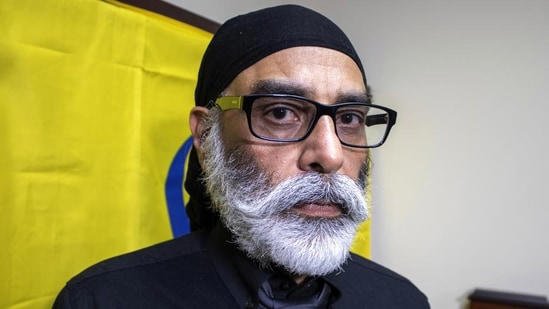India’s National Security Advisor (NSA) Ajit Doval has been summoned by a US court in connection with an alleged plot to assassinate Khalistani terrorist Hardeep Singh Pannun. The court’s decision has sent shockwaves through diplomatic and security circles, raising significant questions about international law, diplomatic relations, and the complex nature of counterterrorism efforts.
Background of the Allegations
Hardeep Singh Pannun, a prominent figure in the Khalistani movement, has been a subject of international scrutiny due to his involvement in orchestrating violent activities aimed at destabilizing India. Pannun, who is currently in exile, has been accused of inciting violence and terrorism through his affiliations with various extremist organizations. The allegations against him have made him a controversial figure on the global stage, with several countries including India, seeking his apprehension.
The recent court summons comes amid reports that a purported plot to assassinate Pannun was allegedly linked to Indian interests. The US court’s involvement indicates that the case has crossed significant international boundaries, touching on issues of sovereignty, extraterritorial jurisdiction, and diplomatic immunity. The nature of the allegations suggests a complex and potentially high-stakes legal battle ahead.
Ajit Doval’s Role and Response
Ajit Doval, India’s NSA and a key figure in the country’s national security apparatus, has been at the forefront of India’s counterterrorism strategies and international diplomacy. His role in national security matters is well-regarded, and he is known for his expertise in dealing with complex security challenges.
The court summons represents a serious and unprecedented legal action against one of India’s top security officials. The specific allegations related to Doval involve claims that he may have been involved in, or had knowledge of, a covert operation targeting Pannun. These claims have not been officially confirmed, and there has been no substantial evidence presented to support them thus far.
In response to the summons, Indian officials have expressed deep concern and frustration. The Indian government has characterized the summons as a baseless and politically motivated move, aimed at undermining India’s counterterrorism efforts. Indian authorities have reiterated their commitment to combating terrorism and maintaining security, while also stressing that any actions taken are in accordance with international law and agreements.
Diplomatic and Legal Implications
The US court’s decision to summon Ajit Doval has profound diplomatic implications. It signifies a potential strain in US-India relations, which have historically been characterized by strong cooperation on security and counterterrorism issues. The case may lead to heightened diplomatic tensions and could impact collaborative efforts between the two nations in tackling global terrorism.
From a legal perspective, the summons raises questions about extraterritorial jurisdiction and the extent to which foreign officials can be held accountable in the US court system. The case may set a precedent for how international counterterrorism operations are scrutinized and judged under foreign legal frameworks.
Indian legal experts and diplomats are likely to challenge the summons, arguing that such matters fall outside the jurisdiction of US courts, especially given the sensitive nature of international counterterrorism operations. They may also argue that the summons could undermine India’s sovereignty and its ability to effectively manage its national security.
Impact on Counterterrorism Cooperation
The case could have repercussions for global counterterrorism cooperation. If the allegations are seen as politically motivated or lacking substantive evidence, it may complicate international efforts to combat terrorism and strengthen global security frameworks. On the other hand, if the allegations lead to further revelations, they could prompt a reevaluation of counterterrorism practices and international collaboration.
India’s counterterrorism strategy relies on both domestic and international efforts to neutralize threats and ensure security. The involvement of senior officials in such high-profile cases underscores the challenges faced in managing global security dynamics and maintaining international partnerships.
The US court’s summons of Ajit Doval over the alleged plot to kill Khalistani terrorist Hardeep Singh Pannun marks a significant and controversial development in international counterterrorism and diplomatic relations. The case highlights the complex interplay between national security, international law, and diplomatic norms. As the situation unfolds, it will be crucial to monitor the legal proceedings and diplomatic negotiations to understand the broader implications for US-India relations and global counterterrorism efforts.

